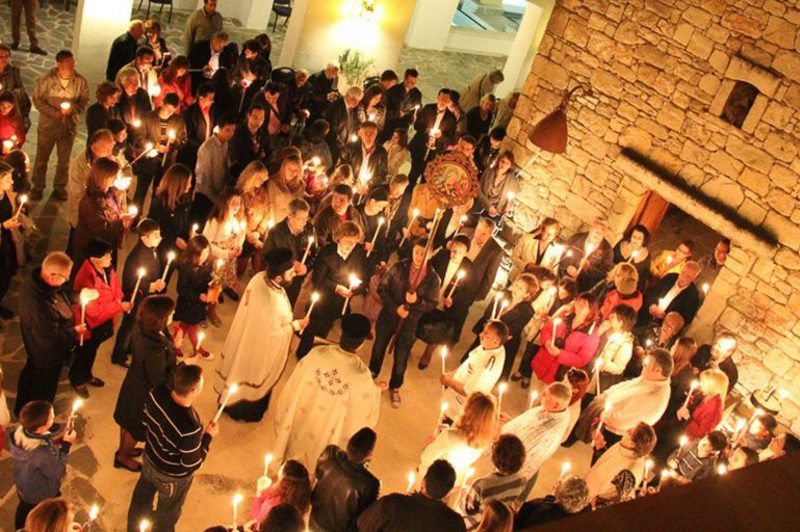
Easter celebrations are the most beautiful and emotional events in the Greek calendar. Rich and colourful, for believers they are an intense act of faith, and for non-believers, the spring-time festival is a time to marvel at the ancient traditions surrounding the story of the Resurrection. For both it’s a joyful symbol of rebirth and renewal.
Easter in Greece is a feast for the senses: the scent of spring blossoms and citrus fruit is in the air; and on Easter Sunday, the smoky fragrance of lamb crisping on the spit. Church bells call the faithful to prayer, as inside every church and chapel, Orthodox priests chant mystical incantations which date back to Byzantine times.
Many Greeks will have observed the 40 days of Lent by Good Friday (Megali Paraskeví), and in the seven days leading up to Easter Sunday, even more will have refrained from eating meat, and dairy products. During the last week leading up to the Easter weekend, churches across Greece are decorated for the mourning of Christ’s death, with women bringing flowers to prepare the “Epitaphios” – Christ’s funeral bier. On the evening of Good Friday, every town and village will have its own Epitaphios service and procession, with believers queuing to pay their respects. The grief of Good Friday is replaced on Saturday by a different spirit as people eagerly prepare themselves for the celebration of Christ’s Resurrection.
For each and every community in Greece, the Easter Saturday midnight mass is the most important community event of the year. Every place of worship is full. Children hold lambades (colourfully decorated candles), and with the priests’ prayers, the congregation wait expectantly for the miracle of Easter to be announced. Just before midnight, shrouded in darkness, a priest brings forward a single flame. Then at 12, the words “Christos anesti!” (Christ is risen), will be spoken, and the reply given: “Alithos anesti!” (Indeed He is risen).
With miracle of the resurrection story having been marked, now the celebrations can begin. The revelers, candles in hand, file from the church and head for the family home. For most, Mayiritsa (a soup made from lamb’s intestines) is the traditional midnight dinner. It’s been a long night but one thing is for sure, Greece’s holiest of nights isn’t going to dampen people’s spirits for the big day ahead.
Easter Sunday is perhaps Greece at its most carefree. It’s a day of joyful celebration, a day for wine and music and dancing. There is only one dish on the menu for the long late lunch that every family will gather for: delicious lamb, often spit-roasted whole over charcoal.
Creta Maris Resort specializes in helping guests experience the rich traditions and culture of Crete, and celebrating Greek Easter with us – as part of the Creta Maris family – is an experience you’ll never forget. With our very own chapel, we observe the rich Easter traditions of Greece and invite you and your family to join us in the festivities.

















